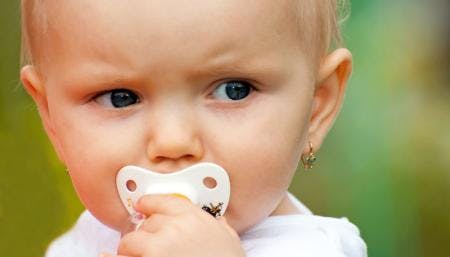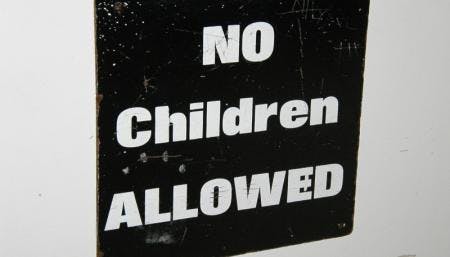Discipline your child without spanking or violence
3 Min Read•Nov 23

Raising an LGBTQ+ child: A guide for supportive parents
3 Min Read•Nov 23

Striking the right balance: Managing screen time for children
3 Min Read•Sep 27

What age can my daughter start wearing makeup?
2 Min Read•Sep 3

Should drag events be allowed in public libraries?
3 Min Read•Sep 3

How should I talk to my children about climate change?
3 Min Read•Sep 3

Pierced ears for babies: cute or trashy?
2 Min Read•Sep 2

How to talk to your kids about Donald Trump's arrest
3 Min Read•Aug 27

Is TikTok safe for kids? A cautionary note for parents
3 Min Read•Aug 27

Is your kid smarter than a fifth-gen AI? How to tell if they’re letting tech do their homework
3 Min Read•Aug 24

Ask the Angry Baby: Sippy cup rejection, co-sleeping trauma
2 Min Read•Aug 25•Angry Baby
.jpg%3Fitok%3DK7E8Q_sy&w=1080&q=75)
The ChildFREE (Hate) Movement: Childless By Choice
4 Min Read•Jul 28•Alan Thomas

Five Reasons School Starting in August is Wrong
3 Min Read•Jul 21•Amy Sue Nathan
.jpg%3Fitok%3DJfX3ME7k&w=1080&q=75)
Worst Mother of the Year Award Acceptance Speech
2 Min Read•Jul 15•Christine Basham

When a daughter is embarrassed by her lesbian moms
5 Min Read•Jul 13•Melissa Doak

How to be friends with a working mother
7 Min Read•Jul 12•Kelley Cunningham
.png%3Fitok%3Dz2fv6rag&w=1080&q=75)
Yes, My Kids Always Get Sent to the Principal’s Office
6 Min Read•Jul 9•Dana Keller

The Little White Pill
5 Min Read•Jul 7•Mary Laufer
.jpg%3Fitok%3DFRDvQDq8&w=1080&q=75)
The Mixed Emotions of a Vasectomy
4 Min Read•Jul 1•Laura Shovan

Yes, my kid is retarded
4 Min Read•Jul 1•Karen Murphy

The day my kids found my vibrator
4 Min Read•Jul 1•Michele Hickerty

Blind Mom: Blindness No Impediment to Raising Children
6 Min Read•Jun 30

When my boys found a frog, I knew its death was imminent
3 Min Read•Jun 27•Kelly Miller

Did having kids ruin my life?
5 Min Read•Jun 25•Karen Pruitt Fowler

Forgotten: My Daughter Is Mentally Ill
8 Min Read•Jun 22•Janna Vought

I Think My Neighbor’s Kid Is a Legit Psychopath
4 Min Read•Jun 15•Misty Nuckolls

How bad do mammograms hurt?
3 Min Read•Jun 15•Jessica Carlson

Mowing the Lawn is a Woman's Job
3 Min Read•Jun 15•Elizabeth Thompson

Mom's Creative Solution After Finding Condom in Teen's Laundry
3 Min Read•Jun 12•Kimberly Ripley

Toddler calls father by first name
4 Min Read•May 27•Prescott Carlson

Five discontinued kid food failures
4 Min Read•May 15

70 things my mother used to say
3 Min Read•May 13

Can you be friends with a bad mom?
4 Min Read•Jul 21•Eliana Osborn

An added benefit to nipple piercing
4 Min Read•Jul 25•Kristen Chase

Why you should never make box macaroni & cheese again: a manifesto
6 Min Read•Jul 8•Kim Foster

Special needs of the gifted child
10 Min Read•Aug 25•Kristina Ashlock

